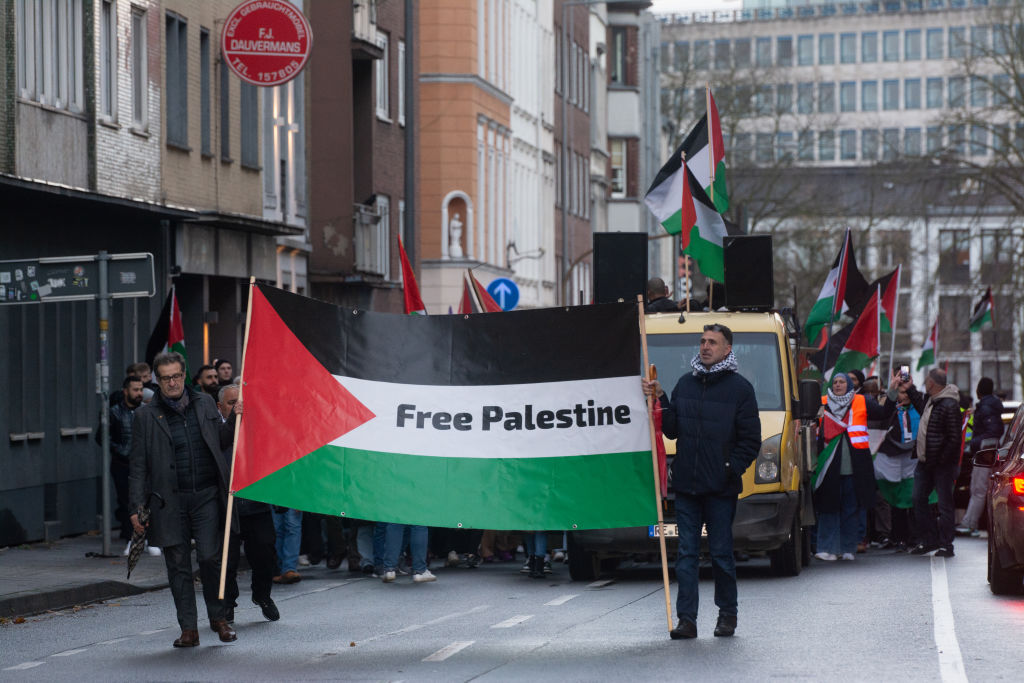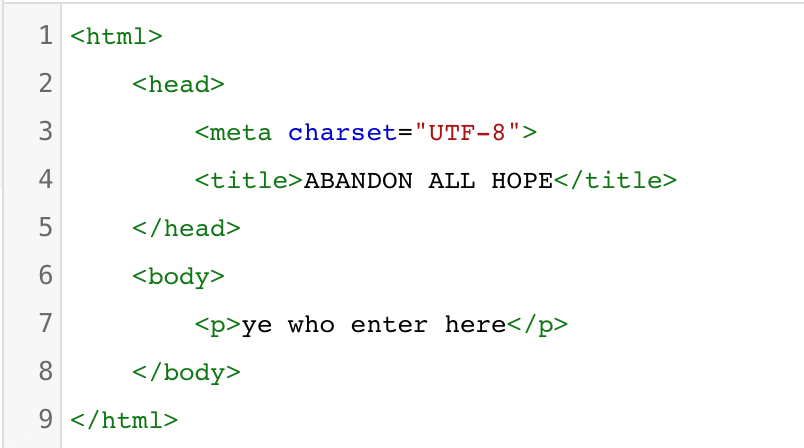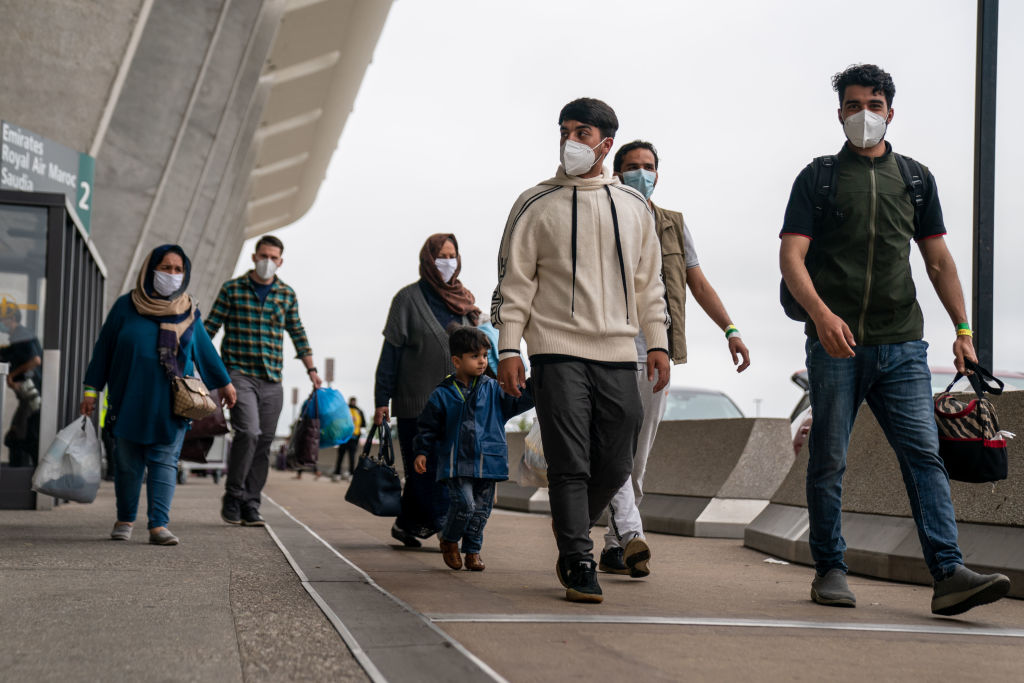The conclusion of a report from the Southern border.
Gaza in Germany

Olaf Scholz appears ready to import more Muslims.
Back in mid-October, in the first days and weeks of the Israel-Gaza crisis, I predicted that the “solution” to this bloody affair would lie in the wholesale relocation of the Gazans—possibly to the U.S. but probably to Europe. It seemed obvious that this would soon be proposed, whether by Israelis or Gazans or the international community. The depth of the atrocities committed on both sides—attack and counter-attack—and the length of the broader conflict itself—75 years and counting, since the day of Israel’s creation—told me that now would be the time for a different approach to be put forward. Coexistence is simply not possible. We’ve tried that.
There were various early indications this might be the case. First there was Nikki Haley’s poorly-worded defense of the Gazan people, in an interview with CNN’s Jake Tapper, against a blanket charge of antisemitism from Ron DeSantis. In making her point that at least half of the 2.3 million Palestinians living in the Gaza Strip don’t even want to be ruled by Hamas, Haley somehow managed to make it sound like an invitation for those million-plus “freedom-loving” Gazans to come and live in the U.S. instead. It was certainly reported that way, including by the pro-DeSantis PAC “Never Back Down.” Never Back Down wanted the apparent gaffe to show that Haley, a politician who could scarcely be accused of neglecting Israel’s interests, was somehow antisemitic herself. To Haley’s credit, she went on to add, “let the Gazans stay within the region.”
In the beginning, European nations were as hostile to the idea of accepting refugees from Gaza as the Muslim nations of the Middle East were. At an E.U. summit in Brussels, Hungarian President Victor Orbán warned that “those who support migration also support terrorism.” Italy’s Prime Minister Georgia Meloni announced that her country would be tightening its border controls. A lone voice of support for resettlement came from Scotland’s First Minister Humza Yousef, the only European premier to have family in Gaza. “Scotland is willing to be the first country in the UK to offer safety and sanctuary to those caught up in these terrible attacks.” But this was nothing more than empty posturing from Yousef, who has no powers to set immigration policy within the U.K.—thank God.
Even so it was telling that when the King of Jordan stated that his nation would not be taking any Gazan refugees, the man standing next to him before the world’s press was German Chancellor Olaf Scholz. Scholz, like his predecessor Angela Merkel, is about as pro-immigration as you can get, and certainly not the kind of man to look a refugee crisis in the mouth, as it were.
Just a few months earlier, in an interview with a German website, Scholz had made the startling claim that Germany would need at least 1.5 million new immigrants a year, every year, just to prop up its pension system. Population decline and emigration have been sapping the German workforce at record speed, and only record immigration—a full half a million more than what came during 2015—would be enough to reverse this trend.
Could we be about to witness another “Wir schaffen das!” moment? Would Germany’s chancellor proclaim that once again Germany “can take it”—the “it” being as many refugees as can find a way to get there? And why wouldn’t Scholz want to help, especially when confronted with the calculated indifference of fellow Muslims in the Middle East, who say they want an end to hostilities between Israel and the Palestinians but do nothing material to help? Subsequent events, however, have shown my instincts were totally right. This brings me little pleasure to report.
The call for a general evacuation of northern Gaza before Israeli forces entered the territory seemed ominous indeed. More than half the population, a million people and counting, were suddenly on the move. Then Israeli cabinet minister Avi Dichter said the quiet part out loud: “We are now rolling out the Gaza Nakba.” “Nakba” is the Arabic word for “disaster,” a word that is used as the proper name—al-Nakba—for the establishment of Israel in 1948 and the massive displacement of Palestinians that followed. Was Dichter implying the Palestinians would now be displaced from Gaza too—for good? He was reproached in the softest of terms by Prime Minister Netanyahu, who simply warned his cabinet “to be careful with your words.”
A few days later, on November 13, two hardline members of the Knesset, including a former deputy director of Mossad, wrote an op-ed for the Wall Street Journal, “Why the West Should Welcome Refugees from Gaza.” Ram Ben Barak and Danny Danon argued that emigration would have to be part of any solution to the crisis, and that Europe, in particular, with its “long history of assisting refugees fleeing conflicts,” should be where the Gazans go.
The two men urged the international community to “explore potential solutions to help civilians caught in the crisis.” The nations of Europe could each take “as few as 10,000 people each,” which would “help alleviate the crisis.” Ben Barak and Danon cited, with approval, Europe’s humanitarian response to the wars in Yugoslavia and Kosovo, and, of course, “Wir schaffen das!” This is an “opportunity,” the two men added, for the nations of Europe to “demonstrate compassion,” which in any case they are obliged to display under international law.
Israeli finance minister Bezalel Smotrich, who previously denied that the Palestinians were even a people, was quick to give his seal of approval to the plan. Congratulating Ben Barak and Danon on Twitter for their “important initiative,” he wrote, “voluntary migration and the absorption of Gazan Arabs in the countries of the world is a humanitarian solution that will bring an end to the suffering of Jews and Arabs alike.” Smotrich has since expressed his belief that “the state system” in Gaza should be allowed to “collapse.” With the refusal of neighboring states to shelter the Gazans, this could only make the need for resettlement outside the region a fait accompli, unless death by starvation is the goal. Gilal Gamliel, Israel’s intelligence minister, has since also added her support to the plan for exodus. “We must try something new, and we call on the international community to help make it a reality,” she wrote in the Jerusalem Post.
It now looks like resettlement is going to be tried, with Germany at the forefront. After diplomatic pressure from Israel about Germany’s “differential” treatment of refugees—a reference to the apparent hardening of Germany’s stance on Gazan refugees due to the massive pro-Palestinian marches and widespread anti-Israel sentiment in Western nations—Germany has announced that it will repatriate 320 German citizens and their families from Gaza. But preparations taking place at the German embassy in Cairo suggest the number will be far in excess of that figure. According to a report in Bild, a large makeshift processing facility has been erected in the grounds of the embassy, and crisis support teams have been recruited to assist with applications. “The construction of processing stations under a tent roof in the embassy garden suggests that Minister Annalena Baerbock’s department may be preparing for a larger influx of Gaza refugees,” Bild reported.
Whether or not Scholz is foolish enough to go full Merkel is still anybody’s guess. The German government should certainly be under no illusions about what a “larger influx” of refugees from Gaza would mean. For starters, these are not the skilled immigrants Germany needs, in Scholz’s vision, to replace its own dwindling population and keep the nation’s pension scheme afloat. The fate of the majority of Syrian migrants to Germany is instructive in this regard. Figures released in 2021 showed that two-thirds of Syrian refugees who came to Germany after 2015 were unable to support themselves financially and were either partially or totally reliant on state welfare. This was a slight improvement on the previous year’s figure of 70 percent, but still a dire testament to the failure of integration. Most of those who were working were in low-paid jobs.
Nikki Haley may be right that half or more of the Gazan people are not supporters of Hamas, but there will be refugees who are, including actual Hamas fighters. This issue has already been raised in the Bundestag. “The federal government must ensure that it does not bring Hamas supporters or even terrorist murderers into the country,” said Andrea Lindholz, the Christian Social Union’s security spokeswoman. “To achieve this, thorough police work by German and Israeli authorities is essential before departure from Cairo.”
Resettlement of Gazans means the possibility, not just of bolstered support in Germany for Hamas and other terrorist organizations, and for Islamism more broadly, but of actual terror attacks as well. Remember that at least one of the men who carried out the November 2015 attacks in Paris, which claimed the lives of 130 people, is known to have entered Europe by pretending to be a Syrian refugee. The man entered Greece with a fake emergency passport declaring him to be a Syrian by the name of Ahmad al Muhammad, before moving on to Macedonia, then Serbia and Croatia. From the Opatovac refugee camp he made his way to Paris and the Stade de France, where he blew himself up alongside two other men during a football match between France and Germany. In the confusion of a large-scale migration from Gaza, it would be impossible to check backgrounds thoroughly, especially since many will have lost all their possessions and forms of identification. Bad guys will slip through.
No discussion of migration from the Middle East to Germany would be complete without mention of another kind of heinous crime. We hardly need to rehearse why sex attacks have reached “epidemic” status in European countries that have received large number of migrants from Muslim countries. We know the reasons: they’re obvious. Sex assaults started to take place on a mass scale in Germany almost as soon as migrants began arriving from Syria in 2015. On New Year’s Eve 2015 in Cologne, at least 1,200 women were sexually assaulted by men described variously as “North African,” “Arab,” “dark-skinned,” and “foreign” by victims and witnesses. This was the most high-profile single incident, one that remains mired in controversy and official denials to this day, but Germans soon came to lament that now “Cologne is every day.” In the first two months of 2016, the Gatestone Institute documented more than 160 reported instances of rape and sexual assault committed by migrants in train stations, swimming pools, and other public venues, with victims as young as seven. The rapes and assaults have continued ever since and show no sign of abating. Many are covered up outright or obfuscated by local authorities or the police. It’s hard to see how the arrival of yet more migrants from a Muslim country where 60 percent of the population is under the age of 24, with a surplus of men, will make the problem better rather than worse. It won’t.
Mass immigration has already brought Germany to the edge, socially and politically. The “far Right”—which is to say, anti-immigration—Alternative for Germany (AfD) has surged to become the most popular single party in the country, reaching 23 percent in a recent poll. That puts it only ten points behind the three parties of the ruling “traffic-light” coalition, and ahead of the combined total of the SPD and FDP, the two senior parties in the coalition. Recent polling shows that ordinary Germans now consider mass immigration to be the most pressing issue facing the country, with 44 percent of voters saying this was their top concern, followed by just 18 percent who said that foreign policy, including the war in Ukraine, was theirs, and 11 percent who chose the economy. In response to the successes of the AfD, the German government has chosen not to allay ordinary people’s fears or woo them away from the Right with new policies, but to clamp down on the party and label its voters “brown filth,” an allusion to the Nazi brownshirts.
The government is openly flirting with the idea of banning the party. Back in the summer, Frank-Walter Steinmeier, the German President, warned in a speech to Germany’s domestic intelligence service that “We all have it in our hands to put those who despise our democracy in their place,” and the co-leader of Olaf Scholz’s Social Democrats has given his support for a ban “if” the AfD is categorized as a group of “proven right-wing extremists” by the intelligence service. But this redefinition is already happening. A few weeks ago, the AfD party in Saxony-Anhalt, one of its strongholds, was officially deemed to be an extremist organization on the basis that it is “not compatible with human dignity, democracy, and the rule of law.” The intelligence service now has a wide range of powers at its disposal to legally surveil the party in the region, including the use of informants, wiretaps, and monitoring of financial flows and personal communications. Further sanctions are inevitable.
An outright ban on the party might seriously backfire on the government. In fact, it could even lead to open political violence. All eyes are on Spain at the moment, where Right and Left are clashing with a ferocity not seen since the thirties, but the situation in Germany is no less volatile. Leftist violence against the Right is now a feature of day-to-day life. A month ago, AfD co-leader Tino Chrupulla was hospitalized after a violent attack at a campaign event in Ingolstadt, the details of which are still unclear, and in August an AfD candidate in Bavaria was beaten up in the street, apparently by a group of migrants who recognized him from a campaign poster. German Antifa regularly post the personal details, including the home addresses, of AfD politicians and urge activists to make their lives “a living hell.” Though the German Right can’t wield political violence with the assurance of tacit government support in the same way that leftist groups like Antifa can, mobilization for direct action is still taking place. The armed forces, in particular, have a “persistent problem of far-right extremism,” as a report from the country’s defense ministry put it. An elite special forces unit was disbanded for this reason in the summer of 2020, and in December of last year, when the police arrested around 50 people associated with an attempted coup, at least one of the men arrested was, unsurprisingly, a serving member of special forces.
Of course, this isn’t just about Germany. Because when Germany decides, Europe decides. That’s certainly how it was back in 2015. By opening Germany’s doors wide open to Syrian refugees, Merkel made a unilateral decision for the rest of the continent, a determination that their territory was no longer sovereign and that they too could “take it.” The million or more migrants who ended up in Germany that year travelled across the breadth of the continent, forming massive human caravans that passed through a number of other countries before they reached their destination. Hungary, for example, saw 400,000 migrants passed through its territory on their way elsewhere. Although most migrants ended up in Germany, others didn’t, and Germany’s open-door policy clearly encouraged more migrants to come to Europe, whether their destination was Germany or Scandinavia or Britain. Kosovo, Afghanistan, Albania, Iraq, and Eritrea were among the top countries of origin for migrants, after Syria, in 2015. These people all got the same message: if you’ll come, Europe will have you.
A lot has changed since 2015, but not enough. The German government is still addicted to mass migration and appears to have learned nothing from eight years of rising anger about its effects. In fact, its disdain for the wishes of native Germans appears only to have deepened. At the moment, Scholz may only plan to take a few thousand Gazans, or he may plan to take more, perhaps many more. But the truth is, whatever his intentions, he may be starting something he cannot control, just as his predecessor did.
In the depths of my meme folder, there’s an image that has a particular relevance at this juncture. Kaiser Wilhelm II, Adolf Hitler, Martin Luther, and Angela Merkel surround a clockface. They are laughing. The hour marks on the clock have been replaced with the words “Destroy Europe.” “Good heavens, look at the time!” the caption reads, as both hands point to a familiar outcome. I pray it’s not that time again.
The American Mind presents a range of perspectives. Views are writers’ own and do not necessarily represent those of The Claremont Institute.
The American Mind is a publication of the Claremont Institute, a non-profit 501(c)(3) organization, dedicated to restoring the principles of the American Founding to their rightful, preeminent authority in our national life. Interested in supporting our work? Gifts to the Claremont Institute are tax-deductible.
At the National Conservative Conference, a vision of Christian humanism.
Meet this moment, Mr. President, before it’s too late (and it’s almost too late)
Ruthless outsourcing will be the death of the American Dream.
Excerpted from Edward J. Erler's new book.
The demand to resettle Afghan refugees brings the war home.






